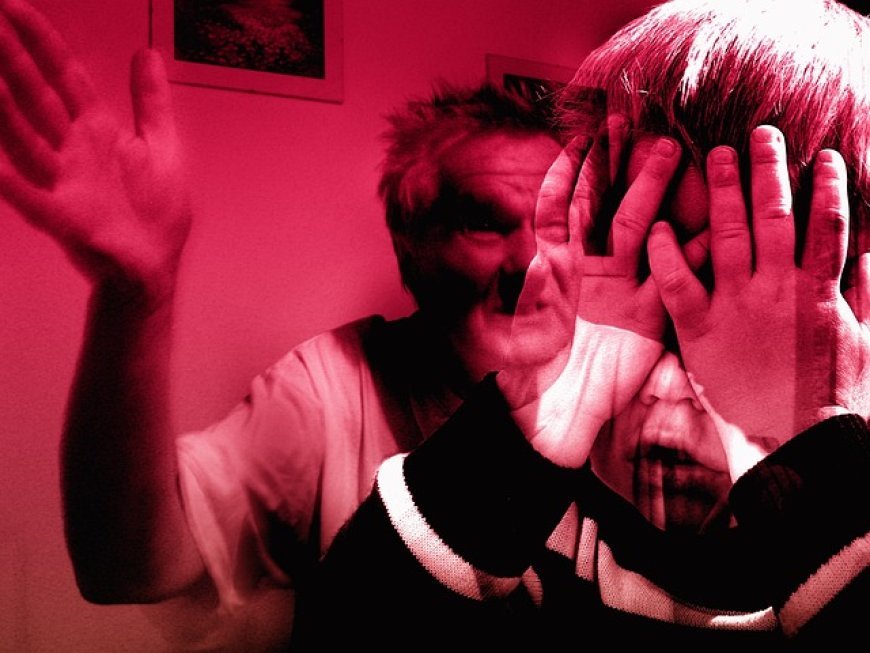PSYCHOLOGICAL ROOTS OF VIOLANCE
Violence is a phenomenon that we hear a lot today and that we have all been exposed to at some point in our lives. Violence is a phenomenon that has more than one type committed by individuals and affects society. Nowadays, as this phenomenon has become so widespread and has reached a considerable extent, the psychological roots of violence are being investigated and attempts are made to find answers to the questions "Why do people commit such aggressive and hurtful actions?" and "What are the mechanisms and impulses underlying these actions?" In this context, in this article we will focus on the underlying motivations and reasons for violence.

In order to understand, reduce and eliminate violence, it is necessary to first understand terson who commits it, the human being. Efforts to explain violence in psychology have generally focused on two theories. The first of these argues that violence resides in human nature and that the urge for aggression exists within humans. The second theory argues that violence is a learned behavior, that individuals learn violence through observation and modeling, and thus resort to violence.
At some points in the text, the expression "aggression" is used instead of violence. Aggression and violence are two intertwined phenomena. Aggression lies at the basis of violence.
Aggression as an Impulse
Freud and most psychoanalytic theorists argue that humans are governed by two basic instincts. These instincts are life and death instincts. Freud considers the life instinct as sexuality (Eros) and the death instinct (Thanatos) as aggression. At this point, according to Freud, if the death instinct is introverted, it leads to suicide, while if it is extroverted, it leads to aggression and anger. In other words, aggression is a person's projection of the anger they feel towards themself onto others. This approach argues that a person exhibits aggressive behavior when they are prevented and their efforts fail to achieve results. According to the theory, by directing the anger towards the "weak" person, rather than the one who created the obstacle, the person experiences a kind of "catharsis" by being relieved, and at the same time, displays a kind of power display by eliminating the feeling of weakness felt by not being able to resist the obstacle. In this way, the person proves his/her power to himself/herself.
Violance as a Learned Behavior
As social beings, we interact with the environment, see it and take it as a model from the moment we are born. Undoubtedly, our most important model resources are our families. The frequency of violence in the family and society and the reactions to violence set an example for the child. According to this theory, it is not the impulses that cause aggression in a person, but the aggressive behaviors that he/she sees from the environment and takes as a model. If the aggressive behavior that a person exhibits by example or learning is reinforced, he/she continues to exhibit this behavior by adopting it.
Aggression as Biological Predisposition
Some studies have revealed that damage and lesions in the frontal lobe, which is the region of the brain responsible for decision, judgment and emotion-behavior control, lead to aggression and violence. In addition, damage to the prefrontal cortex causes disruptions in the functioning of the limbic system and insight problems in the person.
In other studies, it has been observed that the deficiency or excess of some hormones also increases the severity. For example, high testosterone levels increase aggression. Low oxytocin level can also cause an increase in anxiety level and therefore aggression.
Obedience to Authority and Violence
In addition to all these, the social environment we live in and our social status can be seen as the cause of violence in some cases. When it comes to authority and obedience, our actions are no longer governed by our own perceptions of right and wrong, but by authority. We do not go against authority due to factors such as our personality and social structure. For example, a police officer or soldier may carry out aggressive and violent actions by following orders received from the authority in order to ensure peace and security.
Lovelessness and Violence
In addition to basic physiological needs, people also have emotional needs such as love, approval, attention, etc. These needs are primarily met during childhood. Additionally, the first 6 years of life have significant effects on personality development. During this period, children who cannot establish positive relationships with the environment, especially the family, and who cannot receive the approval they need from the environment are more likely to be irritable, pessimistic and aggressive. In order to suppress his/her feelings of inadequacy and worthlessness, he/she may develop a superiority complex and inflict psychological and physical violence on those around him.
To summarize generally, violence is not an action arising from a single reason. The experiences gained throughout life, the instincts and pathologies we bring with our existence, what we feel and what we reinforce are at the basis of our actions, and therefore at the basis of violence. Even if eliminating violence is unlikely, we can reduce it. However, the reference for positive personality and social relationships is the love given in the family and the sense of acceptance. Everything starts in the family and takes shape in the individual. Positive relationships established in the family and correct guidance by the family are the biggest obstacles to violence.
What's Your Reaction?


















































































